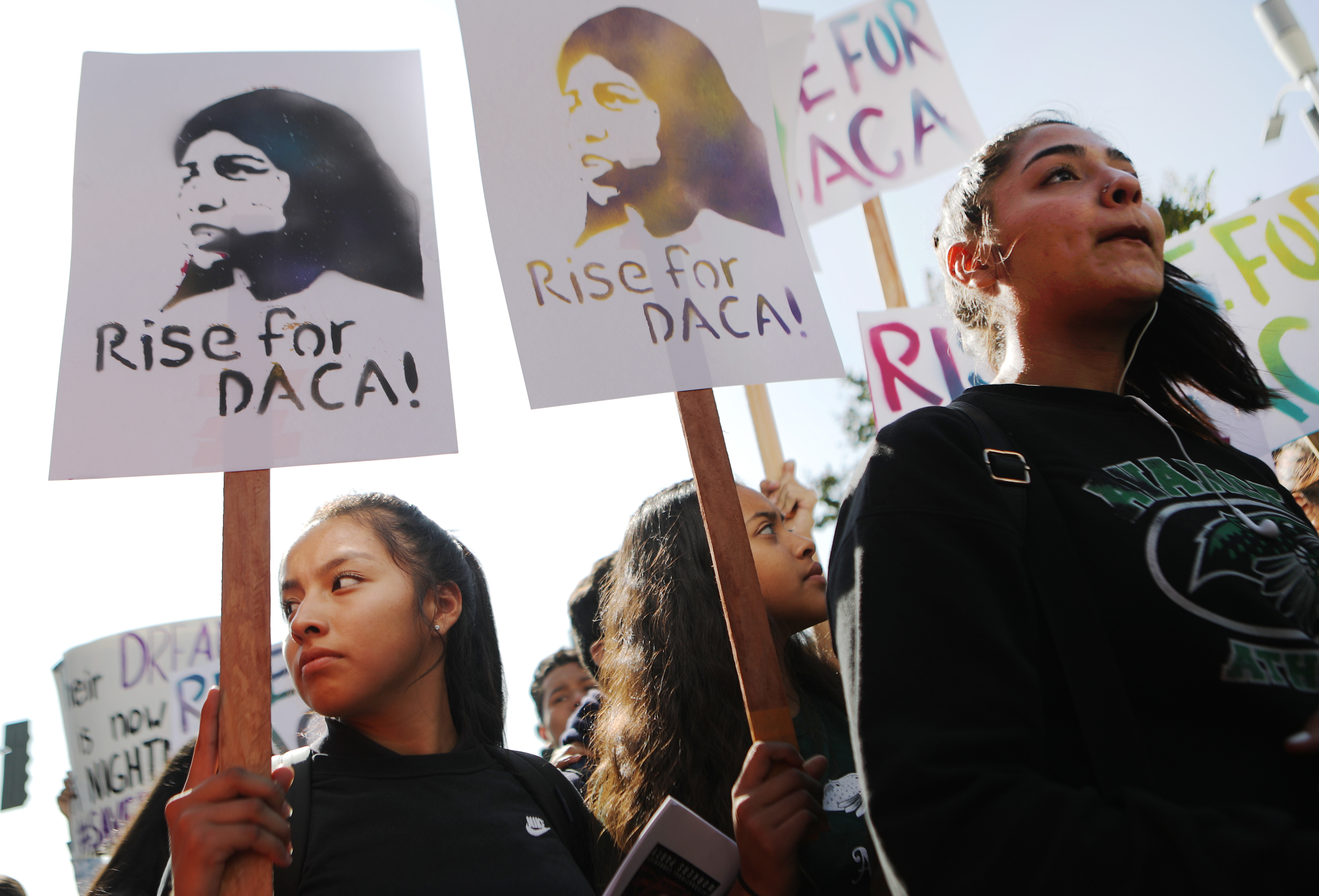“Undocumented and unafraid” echoed outside the Supreme Court on Tuesday as dozens of Deferred Action for Childhood Arrivals (DACA) recipients stood indoors sharing their stories in front of nine justices, made up of five conservatives and four liberals. The session was held to assess the lawfulness of the president’s move to fully terminate the program, which benefits at least 700,000 individuals.
Hundreds of DACA recipients and allies gathered outside of the Supreme Court in peaceful protest of the program’s possible termination and support of those fighting for the program’s survival at the high court. For weeks, people have planned for this moment with everything from a massive school walkout to a 230-mile “Home is Here” march to the Supreme Court organized by Make the Road New York.
While a decision on the case isn’t expected until 2020, early assessments show conservatives seem predictably keen to vote in President Donald Trump’s favor. However, Chief Justice John Roberts may be swayed either way.
As stated in NBC News, this wouldn’t be the first time Roberts makes the deciding vote. A few months ago, the 64-year-old justice voted against adding a citizenship question on the 2020 census form.
Tuesday’s arguments were the first step in what has been called one of the highest-profile cases set in motion to challenge Trump’s harmful immigration plans.
Ahead of the oral arguments, the president took to his favorite means of communication to share his predictable opinion on today’s hearing. “Many of the people in DACA, no longer very young, are far from ‘angels.’ Some are very tough, hardened criminals,” he said on Twitter, doubling down on his all-too familiar non-factual rhetoric.
According to U.S. Citizenship and Immigration Services, maintaining and renewing immigration status under DACA is explicitly built to prevent that from being the case. In order to even request a renewal, those in the program must not have a felony conviction or pose a threat to public safety.
In the allotted hour and a half, DACA recipients pled for the right to stay in a country that made them so-called “Dreamers.”
The four liberal justices were all but shy in voicing their opinions on the issue. “This is about a choice to destroy lives,” Justice Sonia Sotomayor said.
As evident in United We Dream’s detailed Amicus Brief, the group of people who are impacted by the Supreme Court decision is not a monolith, including people of various ethnic and racial backgrounds. But, as is customary, Latinos showed up in force on Tuesday. “El pueblo unido jamás será vencido,” they chanted.
A decision on this case is expected to come no later than Spring 2020.
